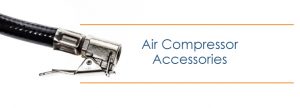What You Need to Know About Woodworking

You love working with your hands and admire the extensive skills of seasoned woodworkers. Why not learn yourself? Even those who’ve been working with wood for years will admit they’re still discovering new aspects of the art. Whether you’re planning to pick woodworking up as a hobby or for home renovation projects, the first step […]
Read MoreA Comprehensive Guide to Air Dryers

Compressed air, along with water, natural gas and electricity, are essential utilities needed in the manufacturing process. Its application is widespread in the automotive, plumbing, textile, agriculture, food and beverage, construction and other industries where moisture must be removed from the air within these compressors to perform efficiently. This guide will cover everything you need […]
Read MoreGuide to Air Compressor Parts

Air compressors are vital power sources for many businesses, and they have a variety of applications for use. From start-and-stop use in an auto repair shop to 24-hour daily operation in a factory or other industrial setting, the process of pressurizing air is a common business operation, and it needs to be efficient. Air compressors can […]
Read MoreBenefits of Variable Speed Drives

Motors that power multiple applications are generally made to run at uniform speeds, regardless of the application in question. For any machine that runs on an AC motor, you can save money on energy costs with the use of a Variable Speed Drive (VSD), which adjusts the motor’s speed according to the needs of a […]
Read More18 Ways to Reduce Your Compressed Air Costs

Air compressors use considerable volumes of energy during a typical work cycle. When you add up all the expenses of operating a facility, any savings can help you boost your bottom line. With air compressors, savings come down to efficiency, which depends on a steady maintenance regimen. The following 18 ways to reduce compressed air […]
Read MoreOverview of Air Compressor Accessories

The air compressor is one of the most vital components in the modern-day industrial framework. From the cars people drive to the buildings in which people work, shop, dine and live, just about every nut, bolt and finishing job is the result of air-powered tools and machinery. Despite its vast importance, however, the air compressor […]
Read MoreThe Value of Logging and Auditing an Air Compressor System

Throughout many industries and businesses, tools and machinery are powered by compressed air. Reliable and powerful, compressed air processes are essential for keeping today’s businesses running. However, compressed air systems are often the most taxing systems for a shop’s energy consumption. Consider these statistics from the Compressed Air and Gas Institute (CAGI): Its estimated that […]
Read MoreInside the Energy Efficient Design of Variable Speed Compressors

Pressurized air is the driving force in a vast range of industrial applications. From production plants to auto-repair shops, air compressors power everything from robot arms to pneumatic tools. Many of these processes replicate functions that were once performed with conventional tools and human hands. For example, air-powered sanders, painters and dryers can complete the […]
Read MoreThe Benefits of Efficient Air Compressors

There are many uses of compressed air. In fact, 70 percent of all manufacturers use a compressed air system, for use with machine tools, material handling, as well as spray painting and separation equipment. One reason for that popularity is the safety and convenience of using air as a resource, as opposed to other energy […]
Read MoreComplete Guide to Rotary Screw Compressors

No matter what you do, you want the right tool for the job. For various applications, a rotary screw air compressor is the right machine. Whether you’re familiar with air compressors or you don’t know a lot about this particular type, we’re here to help. We’ve put together a complete guide to rotary screw air […]
Read More
